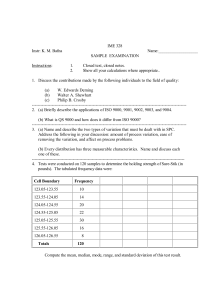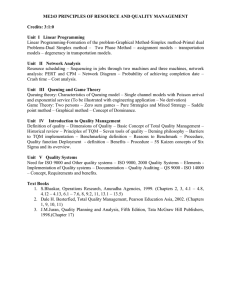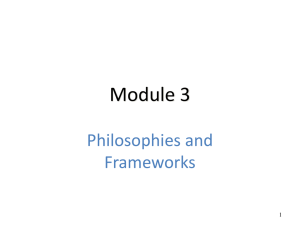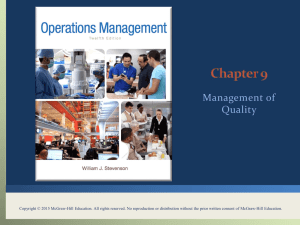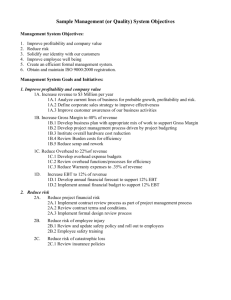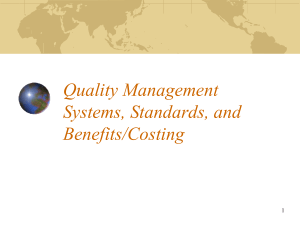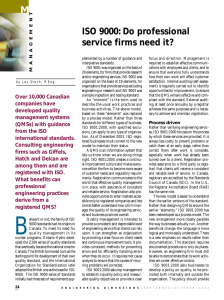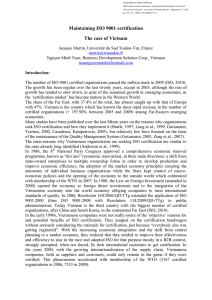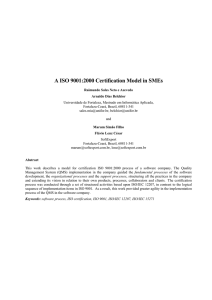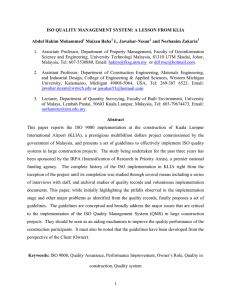3.5 QUALITY CONTROL AND CONTINUAL IMPROVEMENT
advertisement
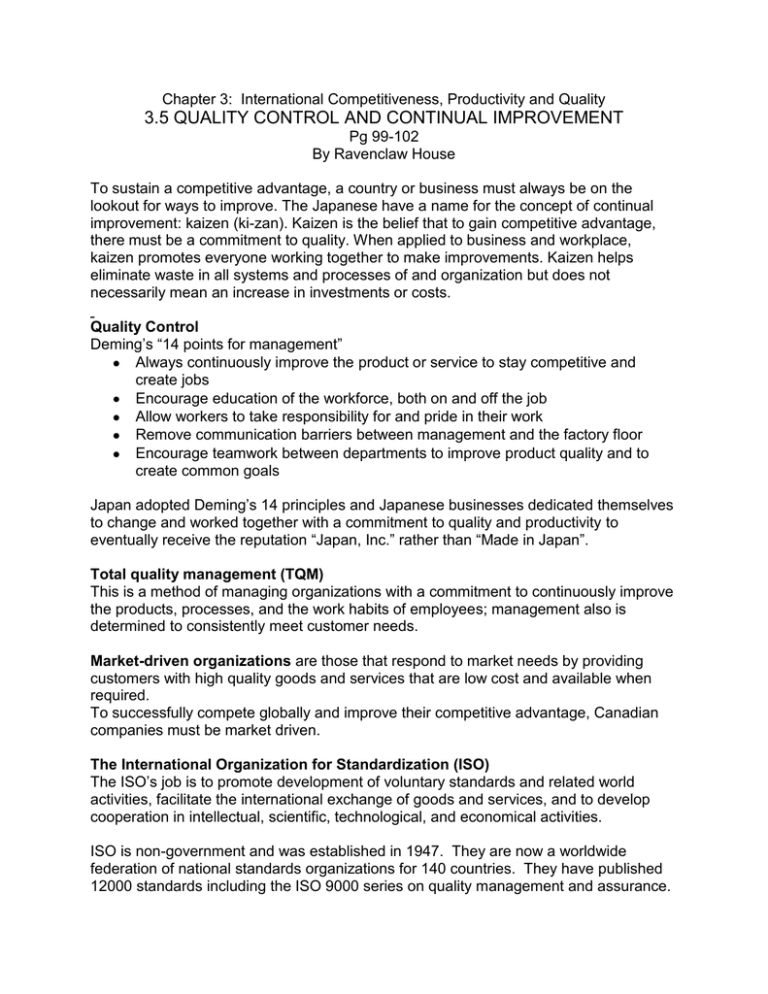
Chapter 3: International Competitiveness, Productivity and Quality 3.5 QUALITY CONTROL AND CONTINUAL IMPROVEMENT Pg 99-102 By Ravenclaw House To sustain a competitive advantage, a country or business must always be on the lookout for ways to improve. The Japanese have a name for the concept of continual improvement: kaizen (ki-zan). Kaizen is the belief that to gain competitive advantage, there must be a commitment to quality. When applied to business and workplace, kaizen promotes everyone working together to make improvements. Kaizen helps eliminate waste in all systems and processes of and organization but does not necessarily mean an increase in investments or costs. Quality Control Deming’s “14 points for management” Always continuously improve the product or service to stay competitive and create jobs Encourage education of the workforce, both on and off the job Allow workers to take responsibility for and pride in their work Remove communication barriers between management and the factory floor Encourage teamwork between departments to improve product quality and to create common goals Japan adopted Deming’s 14 principles and Japanese businesses dedicated themselves to change and worked together with a commitment to quality and productivity to eventually receive the reputation “Japan, Inc.” rather than “Made in Japan”. Total quality management (TQM) This is a method of managing organizations with a commitment to continuously improve the products, processes, and the work habits of employees; management also is determined to consistently meet customer needs. Market-driven organizations are those that respond to market needs by providing customers with high quality goods and services that are low cost and available when required. To successfully compete globally and improve their competitive advantage, Canadian companies must be market driven. The International Organization for Standardization (ISO) The ISO’s job is to promote development of voluntary standards and related world activities, facilitate the international exchange of goods and services, and to develop cooperation in intellectual, scientific, technological, and economical activities. ISO is non-government and was established in 1947. They are now a worldwide federation of national standards organizations for 140 countries. They have published 12000 standards including the ISO 9000 series on quality management and assurance. The ISO 9000 are the requirements a business needs to meet to have its Quality Management System (QMS) verified and registered. Verified businesses advertise the QMS on their facilities. There are 400 000 verified businesses worldwide. The Standards Council of Canada leads Canada’s participation in the two leading standards bodies – ISO and the International Electrotechnical Commission (IEC). The Standards Council promotes efficient and effective standardization and has accredited over 300 public and private organizations. They also oversee the National Standards System (NSS). Many large company and government buyers now require businesses to meet certain ISO standards. Extension Activity: http://www.toyota.co.jp/en/news/05/0927_1.html
